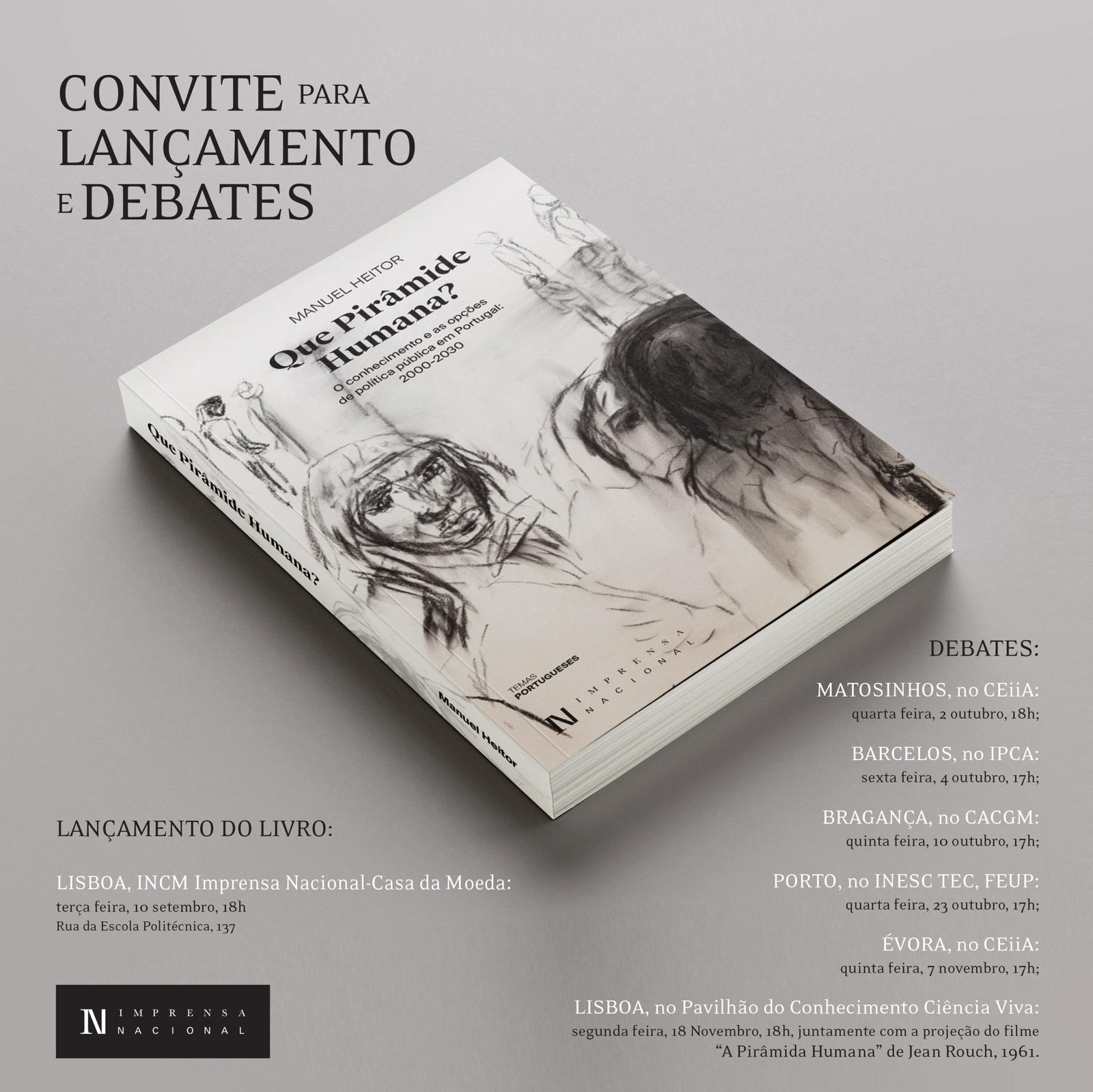Book Launch 10/09/2024

The Centre for Innovation, Technology and Policy Research (IN+), in collaboration with Imprensa Nacional, is pleased to invite you to the presentation of the book "Que Pirâmide Humana? O conhecimento e as opções de política pública em Portugal 2000-2030" (What Human Pyramid? Knowledge and public policy options in Portugal 2000-2030), by Manuel Heitor, on September 10th, at 6 pm, at the Imprensa Nacional Library, in Lisbon (view map). Later, during October and November, there will be a series of debates in various Portuguese cities.
This book addresses the way in which thinking about knowledge in Portugal has been appropriated socially and politically. The analysis is developed on the basis of many of the reflections that have been tested, developed and implemented over the last few decades, especially since European integration in 1986, focusing on the period 2000-2021 and including a prospective analysis for 2030.
It includes the premise that Portugal is currently in a position to foster a mostly happy society and position itself as a center for advanced training and knowledge production with the capacity to establish partnerships on a global scale. However, it must continue to evolve in order to strengthen collaborative agendas with more science, more society and more economy, guaranteeing a sustainable future for the next generations.
More than 60 years after French ethnographic filmmaker Jean Rouch's “Human Pyramid”, Manuel Heitor's analysis increasingly invites us to experiment with new participatory movements of collaborative innovation on a transdisciplinary scale. It also requires learning to face the challenges of the systematic expansion of the social base of support for knowledge, as well as the necessary reinforcement that the growing specialization at the top of scientific knowledge demands.
But it also requires complementing these processes by densifying and diversifying the institutional environment that stimulates the social construction of knowledge. And it also requires guaranteeing the open and free participation of everyone in the development process itself and not just watching any imposed form of development.
In other words, it requires perceiving, stimulating and guaranteeing the continuous and systematic transformation of the human pyramid.
This book begins with a series of drawings by the painter Graça Morais, from the 2018 Metamorphosis of Humanity series, which question and lead us to better understand the human condition and, in particular, the terms of the evolution of the human pyramid in Portugal, including openness and tolerance for growing migratory movements. The book is also introduced by a set of testimonies by experts who have been particularly involved in many of the reflections that have been tested, developed and implemented over the last few decades.
The book is structured into seven chapters, so that they can be read independently and non-sequentially, making it easier to read parts of the book on specific topics without having to read all the previous chapters. All the chapters naturally include a personal interpretation of Portugal's journey since integration into Europe, focusing on the period 2000-2021 and looking ahead to a possible evolution in 2030.



